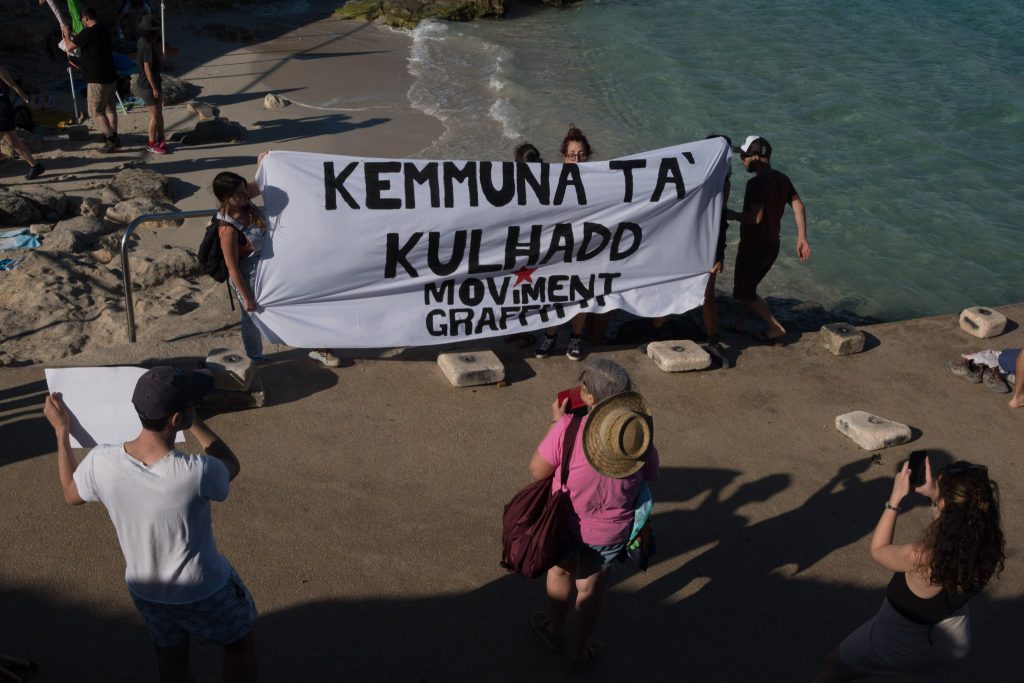Comino tagħna lkoll!

Graffiti activists recently ‘took the Blue Lagoon by storm’ and cleared this iconic beach from deckchairs and other paraphernalia in protest against what they described as the taking over of public land by private operators. Their point was simple: the sea, the bay it is everybody’s…it is unacceptable to pay money to enjoy what is ours by right.
This “direct action” as the activists described it made headlines for the simple reason that it struck a chord with thousands of law-abiding citizens who feel that such concessions are being abused. To some extent this stunt by no more than 50 activists caught Government and even Opposition with the pants down, as over the years they have both contributed to reach to this situation. While they both preached in favour of a balance between these private concessions and the right for the public to enjoy our beaches, in reality it was one-way traffic. This was the reason which prompted Graffiti to take the situation in their hands in the absence of any significant enforcement, bar some occasional sporadic action which is more meant as a media stunt. Such protest was no act of “extremism” but rather an act of desperation in the absence of the authorities’ lack of political will to clamp down on such abuse.
In the aftermath of this protest, government’s immediate reaction fuelled even more questions. Tourism Minister Clayton Bartolo ‘announced’ that no sunbeds would be allowed on the Blue Lagoon sandy beach while the number on the quay would be reduced. “In this way we can assure that people can lay out their towels and stay there if they want to, but at the same time, the substantial number of visitors who ask to rent sunbeds will be catered for,” the minister said. Such statement immediately prompts the question: Why is enforcement only being taken now that a protest has taken place? Why was no action taken before? Moreover, remarks by the minister that enforcement action was coincidentally scheduled to take place on the same day of the protest, only for the activists to turn up before, was treated with a pinch of salt if not ridicule. The sad truth is that unless there is pressure, especially on social media, authorities are very reluctant to lift a finger.
From a wider perspective, what happened in Comino could be happening all over again not only on other popular beaches, but in every other spot where encroachment permits are granted. Complaints of tables and chairs blocking public areas, and at times putting vulnerable pedestrians at risk seem to be the order of the day. While there is nothing intrinsically wrong in the concept of public encroachments, the moment that public interest is sacrificed for the benefit of a few, such concessions turn into abuse. For some reason however, this kind of abuse seems hard to crackdown, be it for lack of political will but also due to excessive fragmentation between various authorities who seem to pass the buck whenever an illegality is flagged. At times complaints get stalled between the Lands Authority, the police, the Malta Tourism Authority and some other public entity.
In 2013 the term Malta Tagħna Lkoll was coined and proved to be a very popular and victorious slogan. It is not too late to turn these words into action. Let us at least start in the smallest part of our archipelago. Comino is tagħna lkoll!
